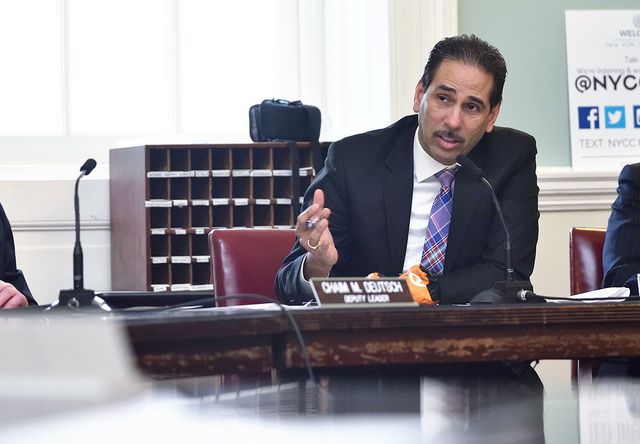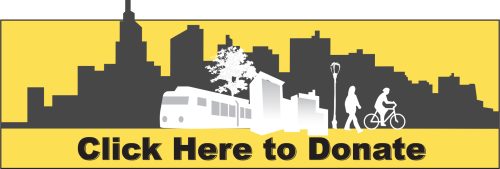A Bronx Council Member wants the city to issue even more free parking in the form of placards for the city's 59 community board chairs — a move that will further isolate them from their transit-riding constituents and make traffic even worse at the same time, critics say.
Despite a crisis of placard abuse by thousands of city and state employees who hog curb space meant for the general public, Fernando Cabrera's bill could be seen as a reasonable perk for volunteer community stalwarts. But opponents say it is built on the flawed logic that public officials need cars to serve the public — and fails to curtail the "windshield perspective" that convinces many would-be community leaders that congestion and loss parking spaces are major quality-of-life issues.
"Elected officials, appointed officials, people who are charged with governing and improving the daily lives of regular New Yorkers need to come to that with the viewpoint of regular New Yorkers," said Transportation Alternatives campaigns manager Jack Davies. "There absolutely needs to be fewer parking placards issued across the city, not more."
The power of the placarded class already weighs on city transportation policymaking — consider MTA board member Larry Schwartz admitting he doesn't ride MTA busses or Council Member Chaim Deutsch bragging about taking the subway twice last week.
Cabrera's bill does offer some built-in precautions: the placards could only be used while the permit-holders were "acting within the scope of their duties as chairperson," and the bill says misusing a placard would be "sufficient cause" for its "revocation."
But such rules are rarely enforced in New York City, thanks to a culture of placard abuse. Nearly everywhere you look in this city, placard-holders park illegally and dangerously with impunity.
For most placard holders, the cost of paying occasional fines for illegal parking is far less than what they would pay to park legally. As a result, the city's 160,000 official placard-holders routinely park in bus stops, no standing zones, crosswalks, and bike lanes.
There's little reason to believe that community board chairs will behave any differently — or be penalized for violating the terms of their parking permit.
Practically, Cabrera's bill would also be impossible to enforce. Traffic enforcement agents patrolling the curb have no way to prove whether a placard-holder is on official business or not. (Complicating matters even more, the bill prohibits the city from towing vehicles being used for official business.)
The council member declined to comment.







